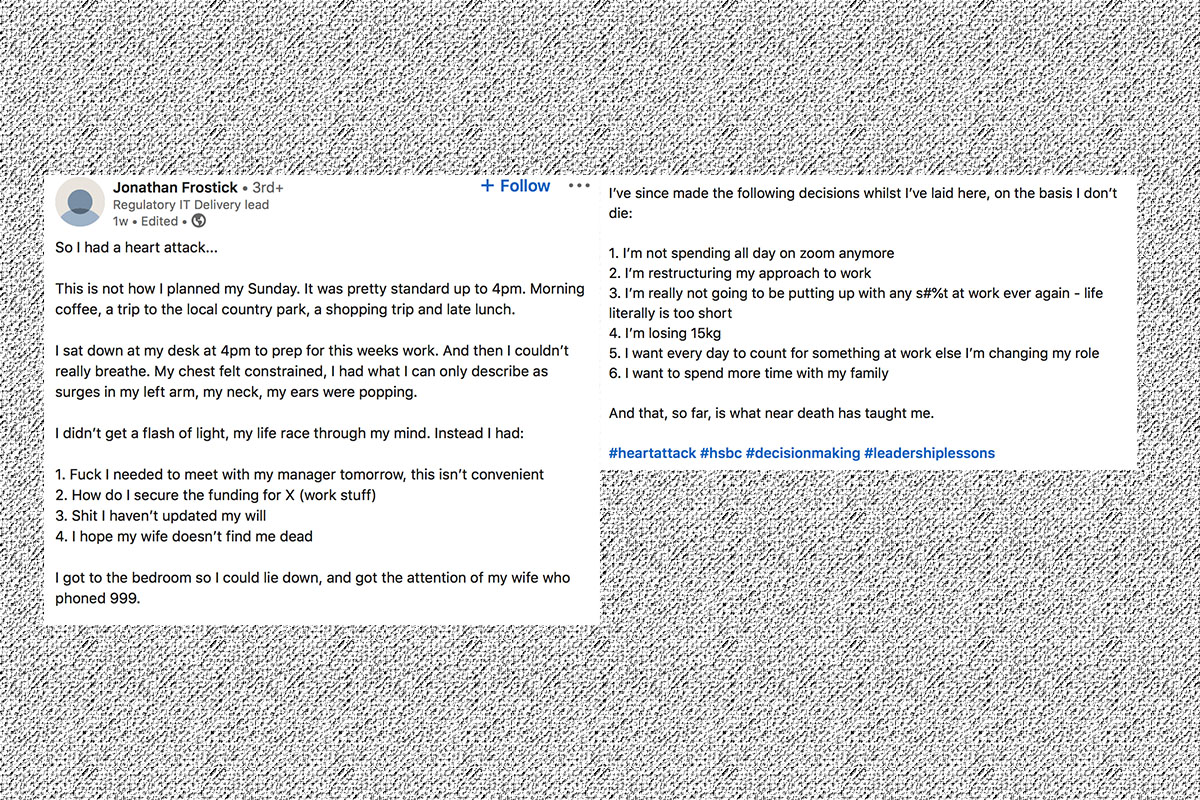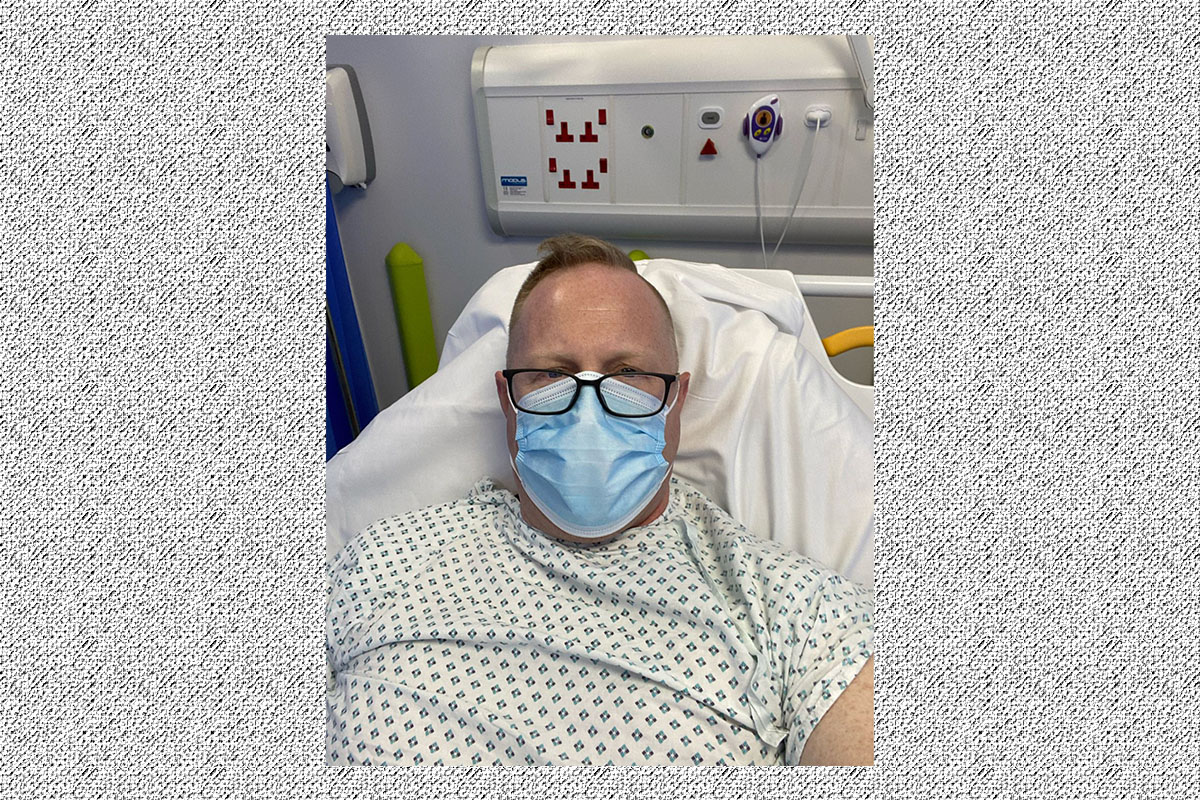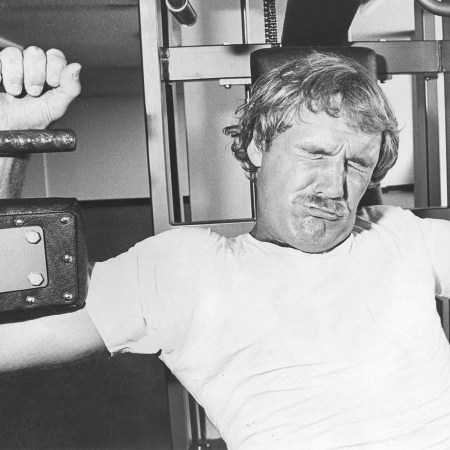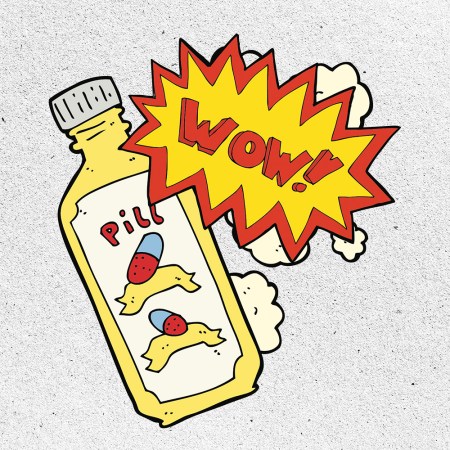Jonathan Frostick, a British man who manages 20 employees at HSBC in London, went viral over the last week thanks to this LinkedIn post. Last Sunday, Frostick suffered a near-death heart attack; but while his chest was “constrained” and his ears were “popping,” all he could think about were work appointments he had scheduled, like needing to meet with managers or secure funding for upcoming projects. Having a heart attack “wasn’t convenient.”
Thanks to his wife, who found him lying down in the bedroom, and a team of doctors, the 45-year-old managed to survive. And — the subject of his viral post — he had a bit of an epiphany while lying in his hospital bed. His priorities had long been out of whack. Frostick vowed to stop spending all his waking hours on Zoom, devote more time to his family and lose over 30 pounds.
The message struck a nerve with the online community — and keep in mind, it’s the professional online community we’re talking about. LinkedIn users have now viewed Frostick’s post millions of times, and it has over 230,000 reactions, with 12,000 comments.

Why is everyone so taken with this story? Well, it’s more than just happiness that a husband and father is getting a second shot at life. Frostick’s points appear to resonate for employees of various industries all over the world, as we mark over a year of exhausting WFH schedules. During the pandemic, Frostick told Bloomberg he’s been working up to 12 hours a day and consistently logging on over the weekend. The Bournemouth native used to finish “sensibly anywhere between five and half six.” These days, eight at night has become the norm.
It’s an anecdotal yet searing example of the workplace burnout so many have felt since March of 2020. Research has confirmed that we’re all working longer, attending more meetings and taking less PTO. And office relationships — once built at the water cooler, during lunch or over happy hour — have become non-existent for many, which has sucked the camaraderie out of daily tasks and projects, and only intensified manager-employee dynamics. With less face time to make an impression and a persistent fear of looking replaceable, it’s natural for employees (or even managers, like Frostick!) to say “yes” over and over again — at the cost of mental and physical health.
For now, Frostick is resting up from his hospital stay, and getting to spend time with his family, just as he’d hoped. We’re rooting for a full recovery and support the revelations that came to him in his time of crisis; after all, if you’re so burnt-out that your life is at risk, what was the point of any of it? HSBC is in support of Frostick’s post, but if you’re unsure how your employer would react, assuming you were in the same situation, consider his other mic-drop realization: “If an organisation didn’t want to employ me because I’d actually taken a moment to reflect, and capture this, then that’s probably not the right place for me to be working.”
Whether you’re looking to get into shape, or just get out of a funk, The Charge has got you covered. Sign up for our new wellness newsletter today.


















